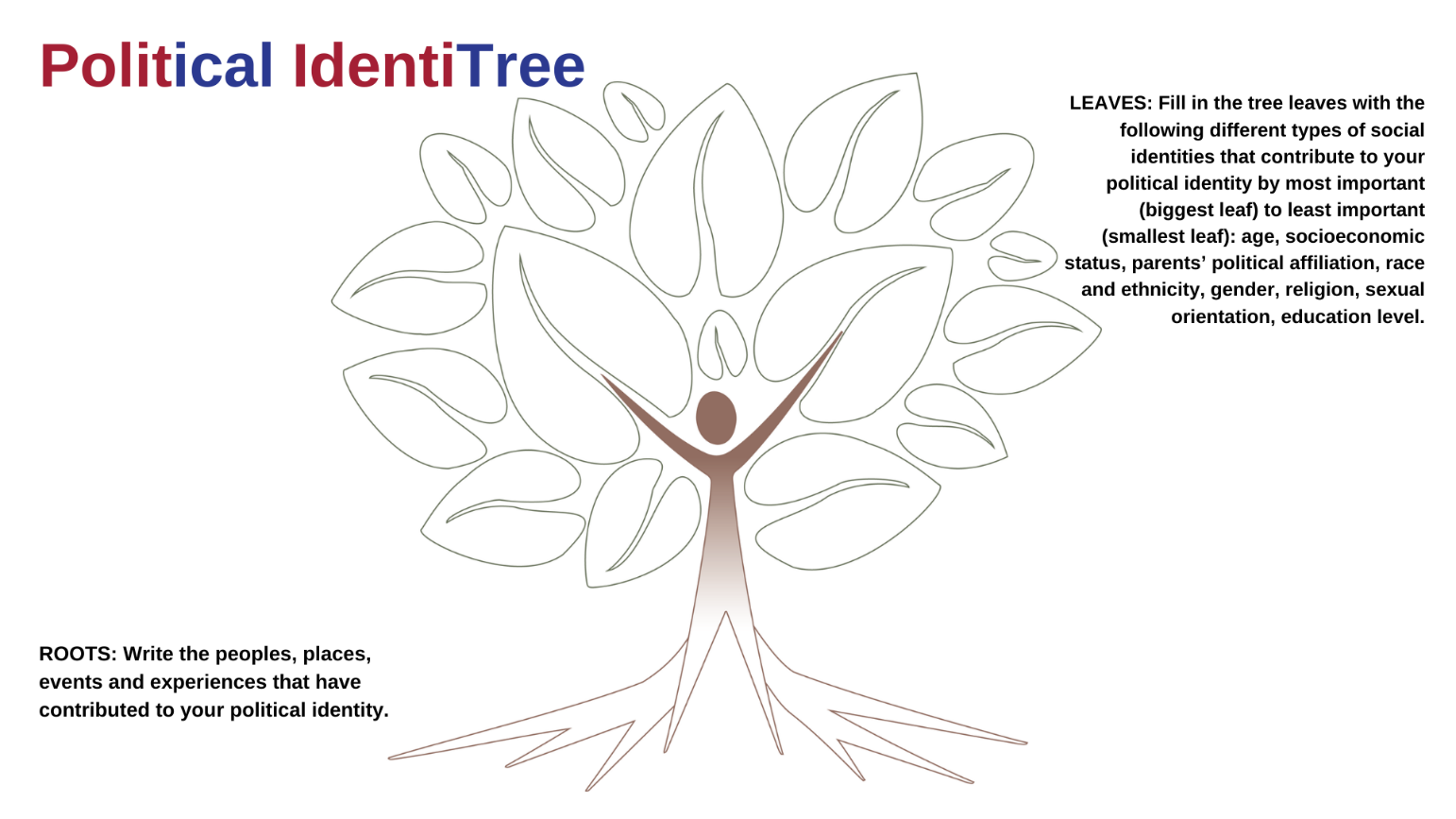Navigating political and other differences of opinion

Navigating political and other differences of opinion: Resources for our Saint Rose community
We’re in a time when civil discourse is harder to come by, but it’s critical to an inclusive community. The College of Saint Rose is our home, and it is our job to make our students feel safe and at home. Below, you’ll find a wealth of resources to help you navigate differences of opinion and strategies for having difficult discussions with others.
Mental Health Resources
The Counseling and Psychological Services Center is dedicated to serving students. The news is filled with stories about COVID-19, race relations, climate change, inequality, government, and the economy, which can all create stress. Below are some resources for managing your mental health at this time.
The following video provides you some guidance from our Center for Counseling and Psychological Services on how to attend to your mental health during this stressful period for our nation.
7 tips for combating stress during stressful times in our world:
- Stick to your routine.
- Take care of yourself.
- Engage in fun and meaningful activities.
- Practice relaxation.
- Limit your social media and news time.
- Limit substance use.
- Reach out to loved ones or professionals if you need extra help.
For more information and help, please reach out to the Counseling and Psychological Services Center.
Counseling and Psychological Services Center
Open Monday, Wednesday, and Friday, from 9 a.m. to 5 p.m.
Open Tuesday and Thursday from 9 a.m. to 7 p.m.
Located on the third floor of Saint Joseph Hall, 985 Madison Avenue, Albany.
Appointments are now being held virtually. You can call the center at 518.454.5200 to make an appointment.
What to do if You Love Someone with Different Political Views
Sometimes it’s not politics that might bring a couple together. When that’s the case, here are some tips from one1ove on how to navigate it (originally published by one1love on this page):
- Be curious: It would be unfair to not give someone a chance to explain their beliefs, so ask questions. Anyone should be willing to help you find the explanations you are looking for, and not put you down for not knowing in the first place.
- Listen: It’s easy to tell yourself you are open-minded. But when your partner has an entirely different viewpoint you may find yourself wanting to defend your beliefs instead of listening to theirs. It’s important to resist that impulse. If you’re taking the time to sit down and discuss a certain topic, both of you need to be really present in the conversation. Distractions should be kept to a minimum as you discuss. For example, keeping your phone in another room is a good idea. If your phone is nearby, you are more than likely to ignore what your partner is saying and inadvertently telling them that it isn’t important.
- How can you actively listen?: So how do you and your partner actively listen to each other? One way to do this is by reiterating the point you just heard them make by saying “This is what I heard you say, am I correct?” This allows your partner to confirm this or correct themselves if it didn’t come across in the way they hoped it would. In return, your partner should offer you the same courtesy. The whole point of a discussion is to see how someone arrived at their opinion; Arguing over why their opinion is wrong is not.
- Monitor your reaction: When you are debating a topic that you know both you and your partner are passionate about, there are ways to ensure that the discussion will not get heated. Before jumping in, take some time to organize your thoughts. By allowing yourself to take a breath you lessen the risk of saying something angry and disrespectful. If there is a point when voices are being raised or volatility is starting to take over, that’s your cue to take a timeout and return to the discussion when you are both level-headed enough to continue. Even a simple “Hey, this is important, and I want to talk about it, but I’m feeling pretty angry right now. Maybe we can talk tomorrow!” can make a huge difference.
- Respect: There is nothing wrong with questioning your beliefs. Although, to be honest, it can be terrifying when it happens. We allow ourselves to open to new ideas when we question what we originally thought we knew. Though, keep in mind, your partner should never force their beliefs on you.
A supportive partner would not try to influence your opinions. Instead, they would tell you this is how they see an issue and that how you process that information is up to you. For some, politics can turn out to be a deal-breaker, and that is fine. However, if you find yourself pursuing a relationship with someone who is politically different than you, communication is going to be more important than ever. Don’t be afraid to talk to each other about your opinions and ask questions if you want to know more. The key is to always be respectful of each other’s thoughts and feelings. After all, love has no political affiliations.
Facilitating Difficult Conversations
This has been a divisive period in our nation, but we can work together to address pressing public problems and to cultivate a more just and inclusive democracy. Our institution believes in the safe and peaceful transition of power as central to democratic societies. Here are some things to keep in mind as we have complex and sometimes difficult conversations about major national issues as a community.
Important points to keep in mind:
- Diversity is an asset that makes us stronger and more creative when we are inclusive and ensure that everyone has equitable access, voice, and participation in discussions and decision making.
- No one’s existence should ever be questioned. We believe in the dignity of every human being and believe that everyone should thrive.
- Politicians don’t always live up to democratic ideals.
Create agreed upon ground rules but provide open space for facilitated discussion:
Encourage collaboration over competition. Student reasoning improves when alternative viewpoints can be considered and engaged, and deliberation can help overcome polarization and reduce extremism.
Ground rules might include:
- Everyone’s viewpoint counts equally.
- Share “air time,” especially online (e.g., on Zoom). There are lots of ways to contribute/participate that don’t involve speaking, like in the chat box, an anonymous poll, etc.
- One person shares at a time.
- If you are hurt or harmed, say so and say why.
- Individuals can disagree, but don’t personalize it; critique the ideas, reasoning, and evidence, not the person
- There are diverse perspectives in this conversation and we can talk respectfully even if we don’t all agree.
- Hate speech will not be tolerated.
- This is not about changing minds. It’s about listening and developing empathy and understanding.
- Avoid judgement and focus on listening with curiosity and for understanding.
- Confidentiality: what happens in the discussion, stays in the discussion.
- Consider adopting a “brave space” that allows people to take risks and speak candidly but allows people to respond when it hurts their feelings and share why.
Political IdentiTree Activity

Discuss why you are having the conversation:
- Ask students/friends why they are having this group is having the conversation?
- Perhaps ask: What do you want to get out of this?
- Elections can raise many emotions and not everyone will be satisfied with the outcomes.
- We can still work together on the many issues facing our community, nation, and world, even if our candidate or political party is not in power.
- Voting in elections is one of many ways people can participate in and influence decision-making.
Ask students/friends to reflect on their own identities, prejudices, positions and biases and how these may impact their perspective:
- Reflect on your own identity, biases, and prejudices and be willing to authentically share how it influenced your perceptions of or reactions.
- As a child, were you around people who were engaged in politics through their participation and/or conversations? If so, what memories do you have about being engaged in politics? If not, did anyone ever speak about why they were not more active?
- When did you first become aware of having political opinions? What do you think shaped them? Have your political opinions changed during the last election cycle? Why/why not?
- How do you think the events we’re living through this year may be affecting your political beliefs? Why?
- How would you feel about the election if you had a different identity?
Ensure everyone has the opportunity to contribute and feel understood:
- Suggest students listen to a podcast or read a common article or text ahead of time. Then start the discussion around that text.
- Consider showing a photo or image from the election and asking for student responses to questions like: How does this image make you feel? What do you see in this image? How might someone from an opposing viewpoint from your own react to this image?
Lean in to politics and to discrepancies between ideals and reality:
- Admit there are problems with political and partisan divisions in our country that make it difficult to solve public problems (e.g. climate change, immigration, etc.). Ask group for their ideas for addressing political divisions and for solving public problems.
- Students/peers are knowledgeable about what is happening, but don’t necessarily see politics and outcomes reflecting their knowledge, positionality, perspectives, or backgrounds. Ask them what they would like to see from elected leaders and from our government and for their ideas of how we might get there.
Pose questions that allow students/peers to express how they feel or what they are grappling with:
- What did the election mean to you?
- If you participated in the election, how did you feel about it? Why?
- Can you think of reasons why some people might be disappointed in the election outcome?
- Can you think of reasons why some people might be happy about the election outcome?
- How might those who have been historically underrepresented, marginalized, or minoritized feel about participating in the election or about the results? How can you uplift and support their perspectives and voices?
- What are ways you would like to see elected leaders work together on issues facing our community, nation, or world?
- What are some public issues that are important to you? How can you and others address those issues by engaging different levels of government and connecting with others in their community?
- What will you do to ensure we address issues facing our community, nation, or world? Offer some ideas: creating art, getting involved in student – like SA – or community organizations, volunteering, providing research or expertise, uplift voices that are traditionally underrepresented, marginalized or minoritized, joining protests or petitions, writing public comments and attending local board and commission meetings on issues they care about, etc.).
- What barriers or challenges are there to addressing issues facing our community, nation and world? How can we overcome them?
- What is something that inspires you for the future of our democracy?
- What kind of reforms would like to see to make our democracy more just and inclusive?
News information, media literacy, and election perceptions:
- Ask students/peers to reflect on how and from where they got news about the election.
- Show examples of how media sources can bias our perceptions of politics, elected officials, and trust in political institutions.

